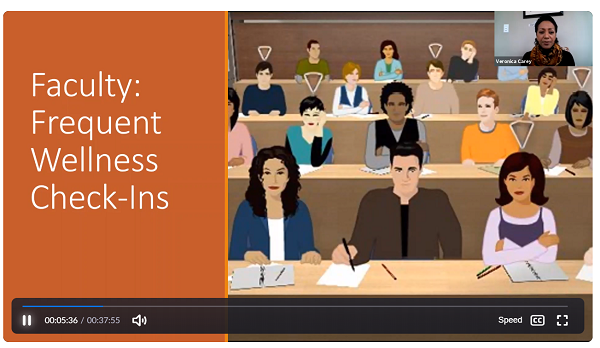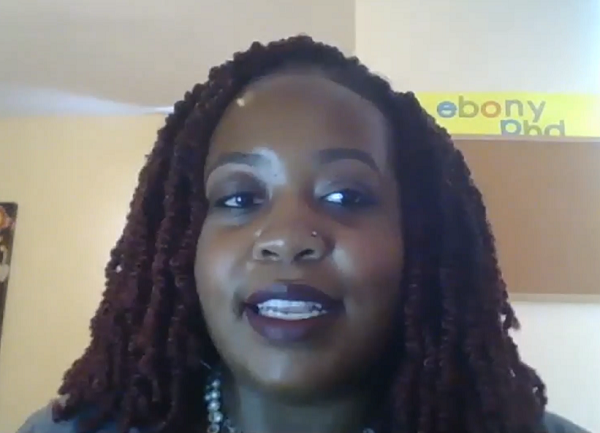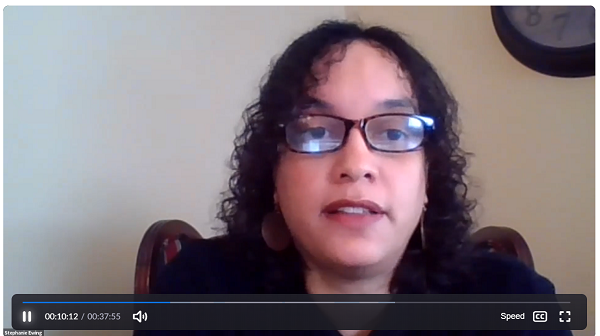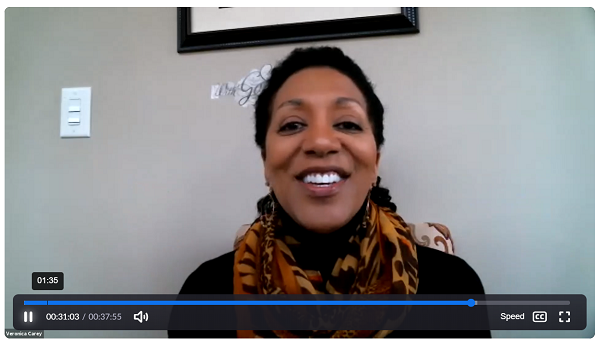Tending to Students' Mental Health
April 10, 2020
The world is in a state of upheaval since the outbreak of the coronavirus. With state and local directives to shelter in place, close non-essential businesses, practice social distancing, move classes online, close college and university campuses and cancel gatherings like annual commencement exercises, hosts of emotions are arising that may be unfamiliar and uncomfortable. Adjusting to this way of life can be difficult and may result in experiencing symptoms associated with anxiety and stress.
 The Board of Diversity, Equity and Inclusion and department of Counseling and Family Therapy decided to call on their expertise to provide a necessary check-in for students before classes started on April 6. Noting that the normal college experience—going to class with friends, eating in the dining hall, and seeing friends and classmates in person—is changing, Veronica Carey, PhD, the assistant dean of Diversity, Equity and Inclusion and associate clinical professor, organized a virtual mental health event for returning students. “It is important to offer support to students for impact of, not only entering into an unprecedented arena whereby there are decentralized academic operations for the immediate future, but also for fully addressing the effect for many other social locations such as payer of tuition, childcare provider, family member returning home, academic senior dealing with loss of formal graduations, etc.,” remarked Carey.
The Board of Diversity, Equity and Inclusion and department of Counseling and Family Therapy decided to call on their expertise to provide a necessary check-in for students before classes started on April 6. Noting that the normal college experience—going to class with friends, eating in the dining hall, and seeing friends and classmates in person—is changing, Veronica Carey, PhD, the assistant dean of Diversity, Equity and Inclusion and associate clinical professor, organized a virtual mental health event for returning students. “It is important to offer support to students for impact of, not only entering into an unprecedented arena whereby there are decentralized academic operations for the immediate future, but also for fully addressing the effect for many other social locations such as payer of tuition, childcare provider, family member returning home, academic senior dealing with loss of formal graduations, etc.,” remarked Carey.
 Soliciting the assistance of fellow Counseling and Family Therapy faculty members, Ebony White, PhD, assistant clinical professor, and Stephanie Ewing, PhD, assistant professor, they provided a forum for learning and discussion and an opportunity to share, from an academic posture, how to balance aspects of life that we know will have impact upon scholastic achievement.
Soliciting the assistance of fellow Counseling and Family Therapy faculty members, Ebony White, PhD, assistant clinical professor, and Stephanie Ewing, PhD, assistant professor, they provided a forum for learning and discussion and an opportunity to share, from an academic posture, how to balance aspects of life that we know will have impact upon scholastic achievement.
 This thirty-minute zoom event was well attended and elicited important questions from students and tips from these experts. White lent her expertise around anxiety to the discussion. “I'm just going to focus on issues that may come up and offer strategies and tips to help navigate the less positive type of anxiety,” White noted. Ewing, a licensed clinical psychologist who teaches mostly graduate students will provide ideas for managing disparate obligations at home. “I really want to speak to how to balance competing demands in this really unprecedented time,” Ewing shared.
This thirty-minute zoom event was well attended and elicited important questions from students and tips from these experts. White lent her expertise around anxiety to the discussion. “I'm just going to focus on issues that may come up and offer strategies and tips to help navigate the less positive type of anxiety,” White noted. Ewing, a licensed clinical psychologist who teaches mostly graduate students will provide ideas for managing disparate obligations at home. “I really want to speak to how to balance competing demands in this really unprecedented time,” Ewing shared.
 Covering at-home supports, self-distancing without isolating, managing classes, healthy eating, working in high-risk areas and many other topics, these faculty members started something very important. “It is frightening, frustrating and sad,” acknowledged Carey. “And yet, at CNHP, we are all somehow trained and involved in healthcare-related fields. We continue to teach, learn and serve in these fields in the midst of this current reality,” she furthered. Because of the loss of life and threat to life has resulted in other losses including social engagement, physical contact, and a disruption to school, work, and home, it is important to know these signs, identify effective coping skills, and have resources to refer to if more support is needed. “Let’s come together to think and discuss ways that we can try to help ourselves and those we work with, live with and care about during these difficult times,” Carey concluded.
Covering at-home supports, self-distancing without isolating, managing classes, healthy eating, working in high-risk areas and many other topics, these faculty members started something very important. “It is frightening, frustrating and sad,” acknowledged Carey. “And yet, at CNHP, we are all somehow trained and involved in healthcare-related fields. We continue to teach, learn and serve in these fields in the midst of this current reality,” she furthered. Because of the loss of life and threat to life has resulted in other losses including social engagement, physical contact, and a disruption to school, work, and home, it is important to know these signs, identify effective coping skills, and have resources to refer to if more support is needed. “Let’s come together to think and discuss ways that we can try to help ourselves and those we work with, live with and care about during these difficult times,” Carey concluded.
Click here to watch the recorded session.
